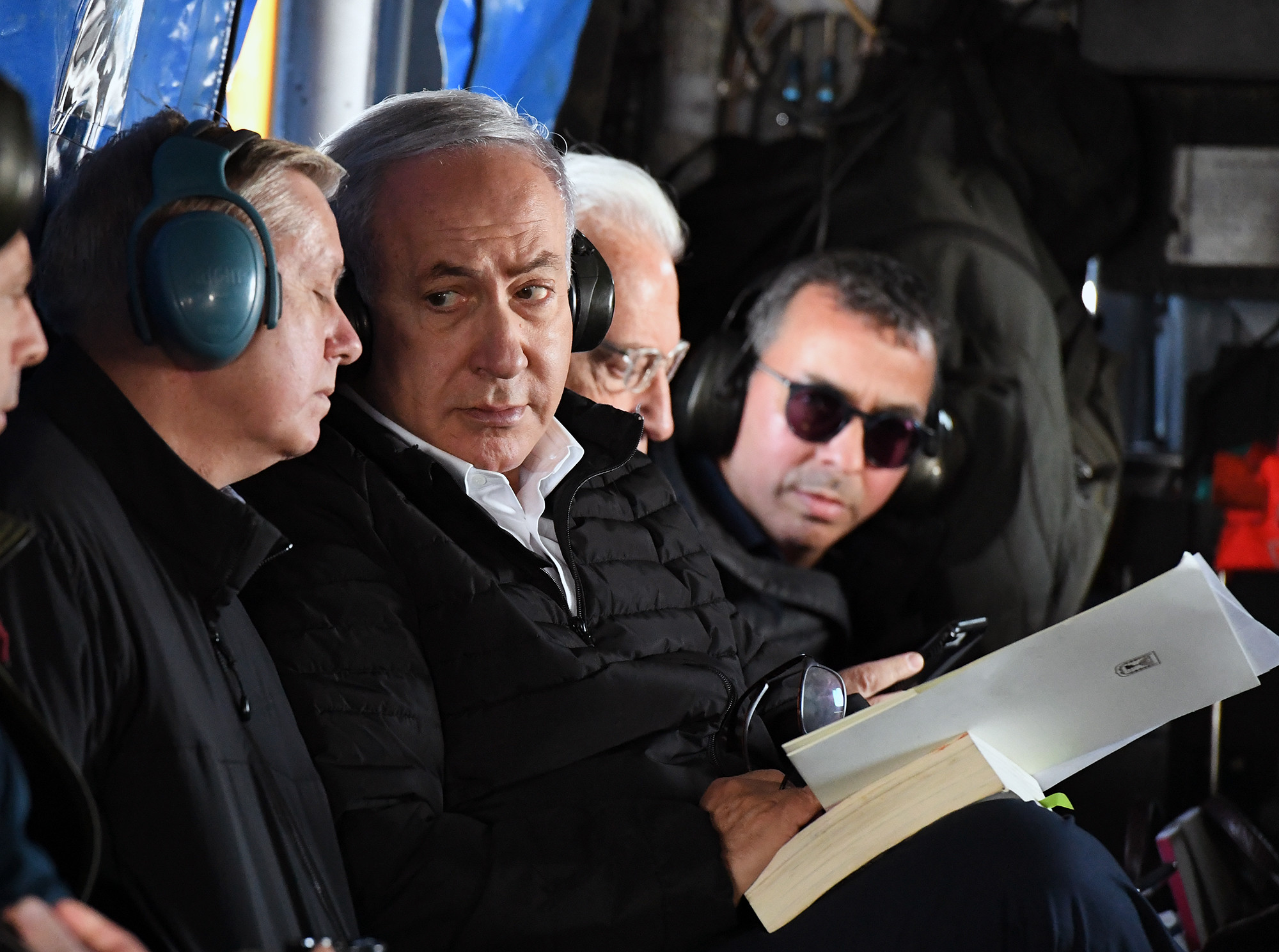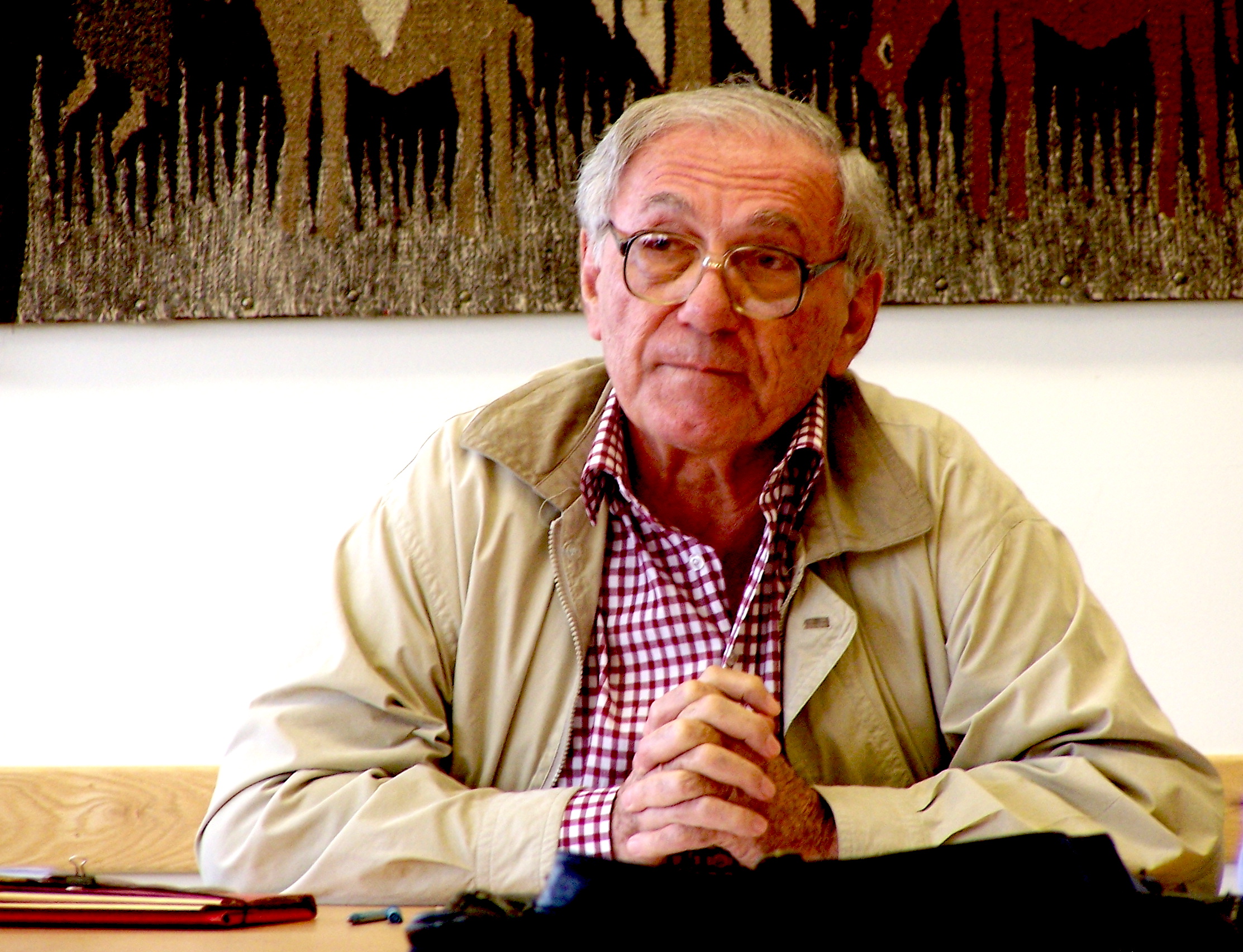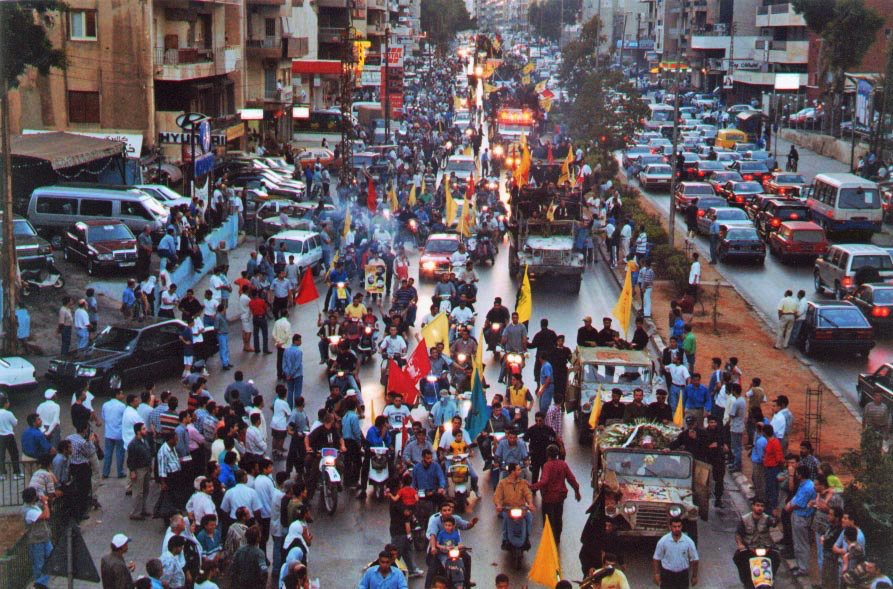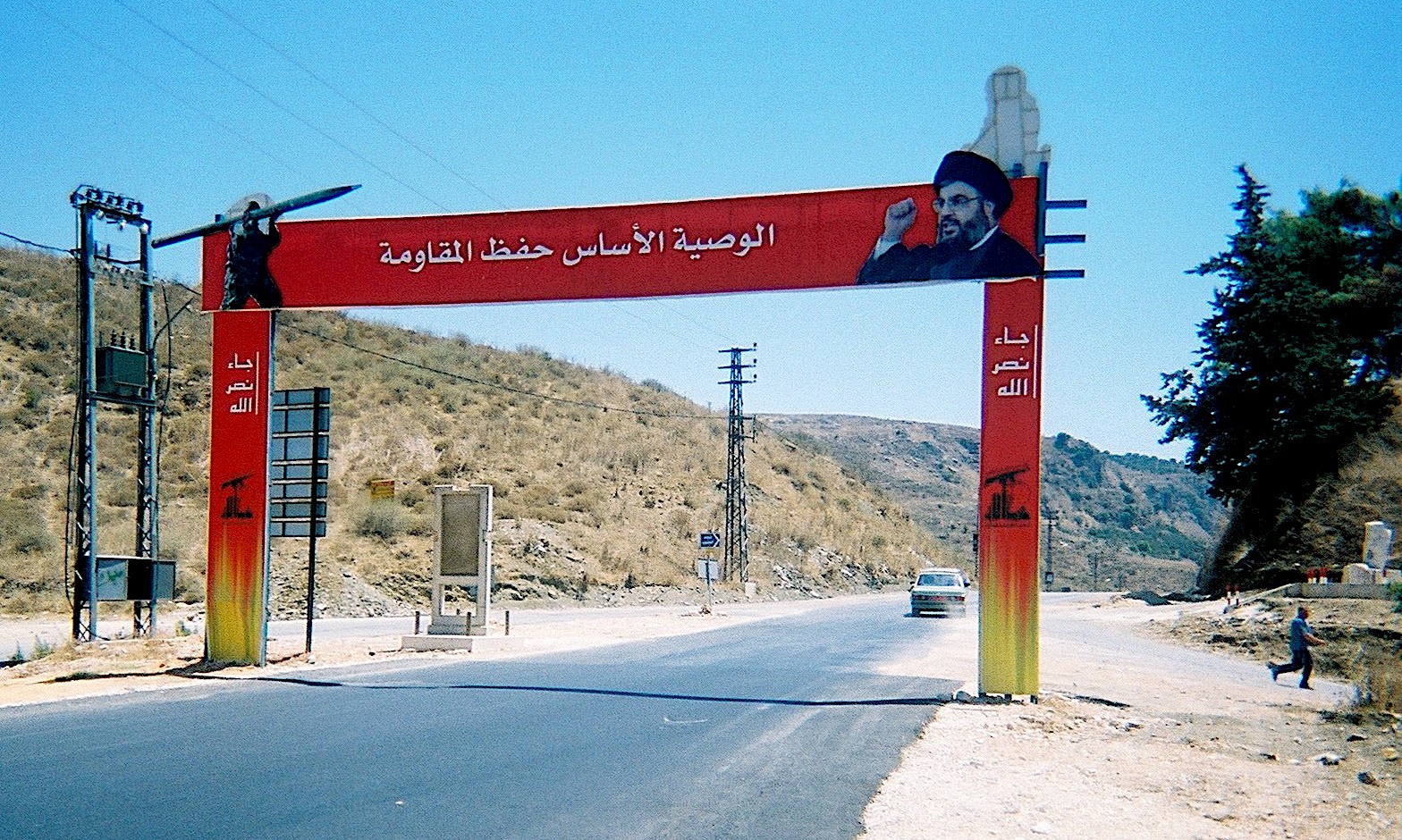The emergence of a disciplined resistance movement in Lebanon not only brought military defeat to Israel and the rise of Hezbollah, it heralded a new era of Arab assertiveness.

Israeli Prime Minister Benjamin Netanyahu, second from left, between U.S. Sen. Lindsey Graham, at left, and
U.S. Ambassador to Israel David Friedman, en route to the Golan Heights in March 2019 for an Israeli briefing on the military situation in the region. (Matty Stern/U.S. Embassy Jerusalem)
By As`ad AbuKhalil
Special to Consortium News
 Israel is in trouble. Its military-strategic doctrine — predicated on the use of massive force to subjugate the Arab population — has resulted in successive massacres intended to instill fear in the hearts of all Arabs. In his book The Revolt, former Israeli Prime Minister Menachem Begin admitted this brutal practice was official Zionist policy.
Israel is in trouble. Its military-strategic doctrine — predicated on the use of massive force to subjugate the Arab population — has resulted in successive massacres intended to instill fear in the hearts of all Arabs. In his book The Revolt, former Israeli Prime Minister Menachem Begin admitted this brutal practice was official Zionist policy.
But times have changed, and Israel does not scare Arabs anymore.
The 2006 Israel-Hezbollah War, also known as the July war in Lebanon, was the watershed, as were the recent successive Israeli wars in Gaza. The perception of the Israeli army has been altered beyond repair.
Gone are the days when Arabs accepted defeat in a matter of hours at the hand of the Israeli army. Also gone are the days when Arab populations harbored little faith in Arab fighters. Scenes of those fighters with their hands over their heads in surrender belong to the 1967-era of the Six Day War, not today.
In July 2006, Arab fighters reversed the trend by instilling fear, not only in the hearts of Israeli soldiers, but also in the hearts of Israelis.
A Hezbollah cross-border raid on July 12, 2006, left three Israeli soldiers dead, with two other Israeli soldiers taken by Hezbollah to Lebanon. Five more were killed in Lebanon, in a failed rescue attempt. The Israelis launched a ground invasion of Southern Lebanon, imposing an air and naval blockade, while Hezbollah continued to launch rockets into northern Israel and engage the Israelis in guerrilla warfare.
After a U.N. Security Council resolution backed by both Israeli and Lebanese governments in August, the conflict ended with the Lebanese army deployed in Southern Lebanon, the blockade lifted, and by October 2006, most Israeli troops had withdrawn from the country.
Not Spooked by PLO
 Israel was not frightened of Lebanon when the Palestine Liberation Organisation (PLO) had its base there after the PLO and its Fatah brigade arrived in 1971 following expulsion from Jordan.
Israel was not frightened of Lebanon when the Palestine Liberation Organisation (PLO) had its base there after the PLO and its Fatah brigade arrived in 1971 following expulsion from Jordan.
The PLO was a menace to Israel, but did not pose a threat. Its leader, Yasser Arafat, never developed a strategy to confront Israel and his military commanders were woefully unsuccessful in devising a strategy of resistance. Arafat’s mind was more on diplomacy and U.N. forums.
It has been repeatedly predicted that Israel would launch another war after the 2006 Israel-Hezbollah War, seeking revenge for its humiliating defeat in the 34-day conflict.
It was said there was no way Israel could afford to let the results of the war stand. But it hasn’t happened.
In my youth in Lebanon, Arabs were genuinely scared of Israel. They were misled to believe the Israeli army was invincible and that resisting the Israeli occupation forces was tantamount to suicide. Two factors contributed to this myth among the Arabs.
Support CN’s Spring
Fund Drive
Arab regimes promoted the notion that Israel’s army and intelligence organizations were uniquely powerful and omnipresent, and that no reasonable person would contemplate defying them or trying to defeat them. Arab governments wanted their populations to fear Israel to minimize the potential of escalation or confrontation with the Israeli army.
Arab rulers’ first priority was — and remains — the stability of their regimes. I remember, growing up, how Arab media would publish long articles on the successes and sophistication of Israeli intelligence, or about the Israeli army’s advanced weaponry. They wanted Arabs to give up on the belief in resistance.
Political and academic literature also pushed this notion of Israel’s invincibility.

Sadik Al-Azm in 2006. (Bgadsby, Wikimedia Commons, Public domain)
Sadiq Al-Azm’s Self Criticism After the Defeat, published after the 1967 War, gave the impression that civilizational, scientific and cultural requirements for victory against Israel were impossible to meet, for now.
The third Arab–Israeli War was fought between Israel and a coalition of Arab states, primarily Egypt, Syria, and Jordan, from June 5 to 10, 1967.
Al-Azm argued a broad and significant transformation of Arab society at all levels was required before even contemplating confronting the Israeli military. Al-Azm and his ilk refused to regard the defeat as purely a military one, which it was, first and foremost.
Those intellectuals exaggerated the historical significance of the defeat. After all, Germany had suffered a devastating defeat in World War I but rose again by the 1930s.
PLO Ineptitude & Lebanese Volunteers
The PLO in Lebanon, under the clownish leadership of Arafat, could be described as schizophrenic. Arafat would wildly exaggerate the PLO’s capabilities and engage in triumphalism over Israel and its army.
However, the PLO’s actual performance in the face of Israel’s military was largely abysmal. The PLO and its Lebanese allies benefited from support of many Arab and international countries, especially during the Cold War. Yet these resources were not properly used and the PLO lacked a strategic acumen dealing with Israeli’s military threat in Lebanon.
The organization would preach that it was feasible to confront and even defeat the Israeli occupation army, but this message contrasted deeply with the reality of the PLO’s own performance. It fell well below the high expectations Arafat and his comrades had planted in the minds of Arabs. This weakened support for the Palestinian cause among the local population prior to the Israelis’ 1982 invasion.
Invasion Galvanized Resistance

Hezbollah parade following the end of Israeli occupation of Southern Lebanon, May 2000. (Khamenei.ir, Wikimedia Commons,CC BY 4.0)
All that changed after 1982. At a time of defeatism, demoralization and political depression, when it seemed the Israeli occupation had succeeded in extinguishing the flame of resistance among Lebanese and Palestinians in Lebanon, Lebanese volunteers rose to chart a new course of battle against Israeli occupation.
Many of these volunteers previously trained within the PLO. The Lebanese volunteers began to slowly escalate national resistance, a process that ultimately led to a humiliating withdraw of Israeli forces from Lebanese territory in 2000.
In May that year, Israel pulled back from Southern Lebanon to the international border line in compliance with U.N. Security Council Resolution 425.
In the ranks were communists, Syrian nationalists and Islamists — what later became Hezbollah, and the Amal movement. Hezbollah established a pattern of military confrontation with Israel that broke with all established norms since the 1948 Israel-Arab War, which followed Israel’s declaration of independence.
It was a combination of factors that brought Hezbollah to a level of military skill and sophistication. I don’t subscribe to the notion that it was Iranian military and financial support that shaped the effectiveness of Hezbollah.
The PLO received military and financial support from an array of countries, yet that did not translate to an effective military force. Hezbollah managed to utilize similar resources in a very effective way and learned from the experiences of the PLO by not resorting to bombastic statements, instead working in total secrecy. It won and preserved public support for its operations against the Israeli army.
The Hezbollah leadership contrasted sharply with that of the PLO. The PLO was often in conflict. Even within the Fatah movement of Arafat, there was constant bickering and infighting and even clashes among the various factions.
Hezbollah established a unified command and assigned individuals the task of implementing the strategy of the leadership. Their military communiques reported developments on the ground as accurately as possible. That created credibility for the movement locally, something the PLO never enjoyed.
Israel Lobbies Against Formidable Threat

Sign erected after the 2006 Israel–Hezbollah War in Southern Lebanon displays rockets and Hezbollah leader Hassan Nasrallah. (Eternalsleeper, Wikimedia Commons, Public domain)
Hezbollah was able to forge a formidable military force. It combined complete secrecy in military operations, an ability to read and predict Israeli army behavior, the utilization of advanced military devices and arms and the pioneering use of psychological warfare against Israel —something Arab armies never considered or used.
The organization was able to train its fighters to scare Israeli soldiers, instead of being conditioned to fear them. The fact that the Israeli army has now formed a special military unit to deal with the possibility of a Hezbollah encroachment into Galilee indicates a level of Arab military preparedness unknown among all Arab armies since 1948.
It is for this reason that Israel lobbies against Hezbollah worldwide and insists, typically, on classifying it as a terrorist organization. Any Arab forces who resist Israeli occupation are considered terrorist in the eyes of the West and Israel. There are Arab organizations, unfortunately and disturbingly, that have harmed civilians. But that pales in comparison with the record of Israel in murdering civilians, and on a large scale. Of course, this should not excuse the harming of civilians by any side.
Israeli remains in a conundrum. On the one hand, it wants to start a war to teach Hezbollah a lesson and revive its past military prestige. But it knows victory is far from being guaranteed. For that reason, Israel will continue to find reasons to lobby the West to disarm its opponents, chiefly in Palestine and Lebanon.
As`ad AbuKhalil is a Lebanese-American professor of political science at California State University, Stanislaus. He is the author of the Historical Dictionary of Lebanon (1998), Bin Laden, Islam and America’s New War on Terrorism (2002), and The Battle for Saudi Arabia (2004) He ran the popular blog The Angry Arab. He tweets as @asadabukhalil
The views expressed are solely those of the author and may or may not reflect those of Consortium News.
Support CN’s Spring
Fund Drive Today



Israel’s survival and progress has as much if not more to do with Arab elite internal rivalries than it is due to the pure brilliance of the Jewish people themselves. Some quarters believe that the Hezbollah, Hamas and Islamic Jehad all have hidden Israeli sponsorship if not also origin. They are there to make the Israeli fait accompli palatable by the Arab masses !
Hezbollah is an anti-colonial, anti-apartheid organization which is fighting for national freedom. Long live Hezbollah. Down with the colonial, apartheid state of Israel.
Thank you for the excellent report.
The poorest and the most repressed people being killed and imprisoned by the most powerful
Israel has become a pariah state and can only be dealt with by boycotting everything/anything made in Israel. The world community needs to come together as they did in S. Africa to destroy their Apartheid policies.
As’ad AbuKhalil says “I don’t subscribe to the notion that it was Iranian military and financial support that shaped the effectiveness of Hezbollah.” I wish he expanded on this claim a little more thoroughly. There is extensive literature on Hezbollah that acknowledges the role of Iran (military, financial and more importantly ideological) in shaping and bringing about the eventual successes of Hezbollah. However, that on its own would not deny other factors in its achievements including Hezbollah’s highly competent organizational skills and running an incorruptible organization.
Thank you so much for this information, it is invaluable for the US led western alliance.
Will they make good use of it?
We must keep it coming fact/evidence based information. That goes for Joe’s Ukrainian article as well. Bravo
“I don’t subscribe to the notion that it was Iranian military and financial support that shaped the effectiveness of Hezbollah.”! I beg to disagree, professor AbuKHALIL. Most *all* of Hezbollah’s organizational and operational strategies/tactics from guerrilla warfare to electoral successes, including, financial, arms and logistical support all the way to the social reform ideas come from Iran. Initially these supports came from Iran’s Hezbollah and now IRGC. Lebanon’s Hezbollah would not have existed with out Iran’s initiative. In fact the name adopted “Hezbollah” as the name chosen by Khomeini.
What will become of Israel’s military occupation once de-dollarization takes full effect? The US will no longer be able to afford the obscene levels of military support Israel enjoys now. Not that that would be a bad thing. The global power shift taking place currently will reverse the current global power structure in effect now. Including Israel’s dominance over the occupied territories.
Large as it is, compared with what USA and allies spent on other wars and currently in Ukraine, this is like 100 billions versus 3-4 billions per year, while Israel has a robust economy and own arms industry.
The funding and other forms of support, like hounding pro-Palestinian positions as anti-Semitic, as exemplified in the purge within English Labour Party (moribund outside England in UK) have much larger value as placing Israel as a pet project of the collective West, however rouge it may be. This is leveraged takeover of the world: support in USA, pro-American politicians cement support in the rest of the West, countries wishing favorable treatment deal with Israel, importing military gear and gear to control the population, like spying technology.
But now, as collective West overreached, this will crumble.
It appears certain that Palestinians will never stop fighting for sovereignty and independence from the tyranny of Israel. Hezbollah, which obliterated much of ISIS, will never acquiesce to the racial supremacist state of Israel. It seems the tide is turning in favour of the oppressed who have suffered 75 years of degradation, sadism, oppression and racial cleansing. But, tragically, many more lives will be lost – and the U.S.A. withdrawing it’s support, due to economic contraction – before this can happen.
Some maintain the political route to ending apartheid has been tried so armed resistance is the only way.
It’s a new day, with the current Israeli govt. showing it’s true colors. Ending apartheid, and achieving equality in a secular state, is doable politically.
Eventually israel’s anti Palestinian actions will boomerang. And rightly so.